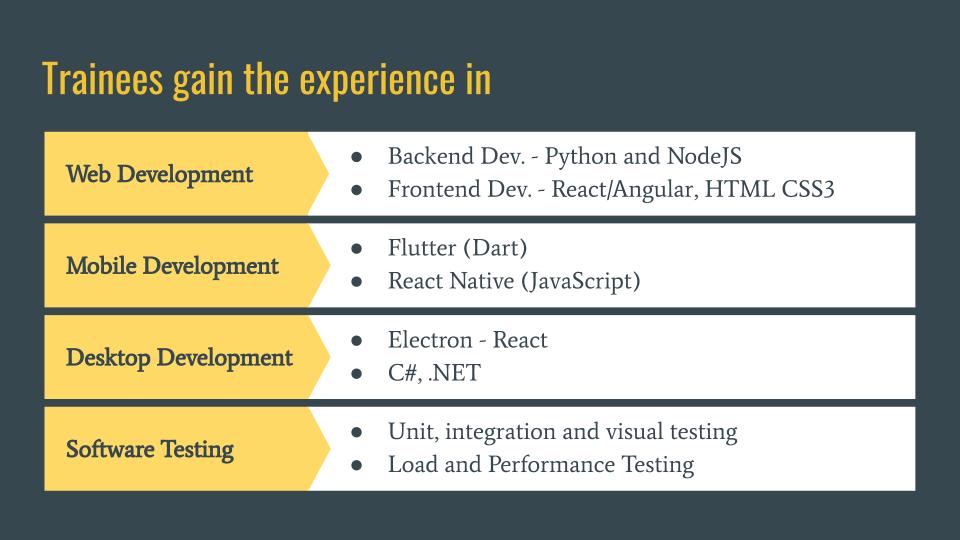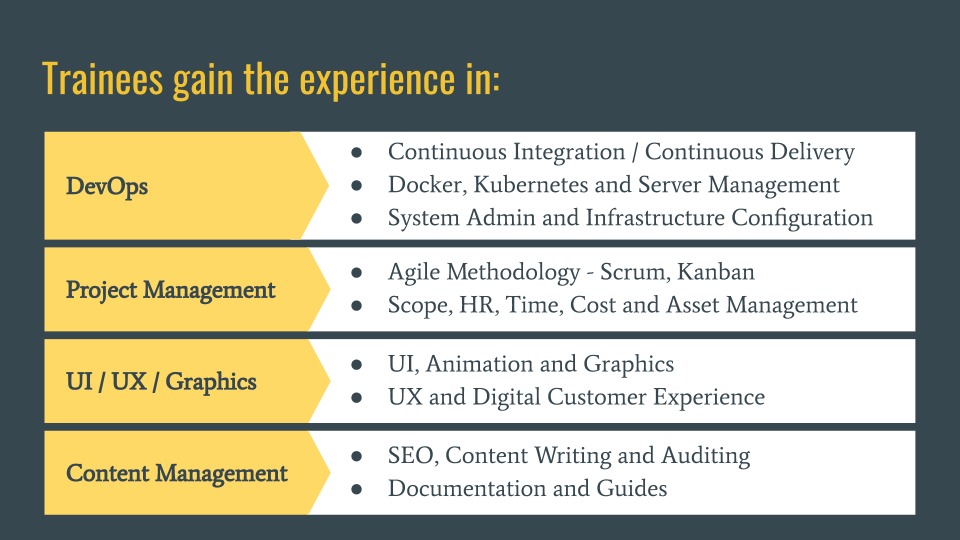What’s the purpose and aim of the Virtual Classroom?
The Virtual Classroom is an annual nine-month programme in Software Development that will be held virtually for Digital Professionals to learn, build and market valuable software solutions for Jamaica and the world at large.
Through the virtual classroom initiative, we are aiming to create a sustainable and scalable environment for digital professionals to:
- Build and market their skills
- Learn and share their knowledge
- Collaborate and create valuable solutions
- Earn passive income and Contribute to society through code
It also aims to solve the problem whereby companies cannot find the right developers and digital professionals due to:
- Lack of Talent Pool
- Unable to find the right person with the right skills
- Availability
- Experience
Who are our target audience?
Digital professionals, who are actively working in the tech industry or students who are studying Computer Science or related courses. However, there are other user groups that are apart of our target audience, but our main target audience is the following:
- Software developers
- Student developers
- Software testers
- UI/UX and web designers
What is the value proposition for trainees?
- Build and market your skills
- Learn and share your knowledge
- Get help online and in-person
- Interact with other professionals
- Collaborate and build valuable solutions for Jamaica and the World at large
- Get Certified by Jamaican Developers Group
- Earn passive income for contributions to the resulting product or company
- Increase employment opportunities
Is the virtual classroom free?
No, it is not free. Both students and other trainees will have to pay. Student cost is between USD $10 - $60 per month, while trainees cost starts at USD $240 per month.
Considering the monthly cost of the programme and the availability of free online courses, why would someone pay and take part in the virtual classroom? Otherwise, what makes the virtual classroom different from an online course?
- It’s hands-on training, where trainees actively learn, collaborate and build software solutions that will be launched and marketed as an actual product or service.
- Students and trainees will get training from our very own industrial professionals who are actively working with the latest technologies, workflows, best practices, techniques and software trends.
- As mentioned above, students and trainees will receive training from industry professionals and companies, who might be their future supervisor or employer.
- As mentioned above, students will be trained with the latest and best software technologies and trends, which reduces the disconnect between the education system and the industry
- Students and trainees will be exposed to working in a large organisation with various teams working towards an ultimatum
- Students and trainees will be exposed to working with Open Source technology that will be used to produce the product.
- Increase employment opportunities through the marketing of alumni students and referring alumni students to companies in Jamaica
- Students and trainees can continue to work on the project as employees of the resulting company, which will be operated by Jamaican Developers Group.
- Students and trainees will receive passive income after the programme has ended and the company has break-even.
- Students and trainees will eventually earn exponentially more than their initial payment.
What is the overall course outline?
During the programme, trainers and trainees are going to learn, collaborate, build and market the following applications:
The e-commerce and the delivery platform will have its own web, mobile and desktop applications. Therefore, we will be developing 6 applications in total. Each application will have at least two teams to develop the UI, UX and backend of the system. As you probably know, we are going to have three main courses/trackers, i.e. web, mobile and desktop development. However, there are complementary tracks, e.g. DevOps, Software Testing, Security and Project Management that will be taught during the programme.

